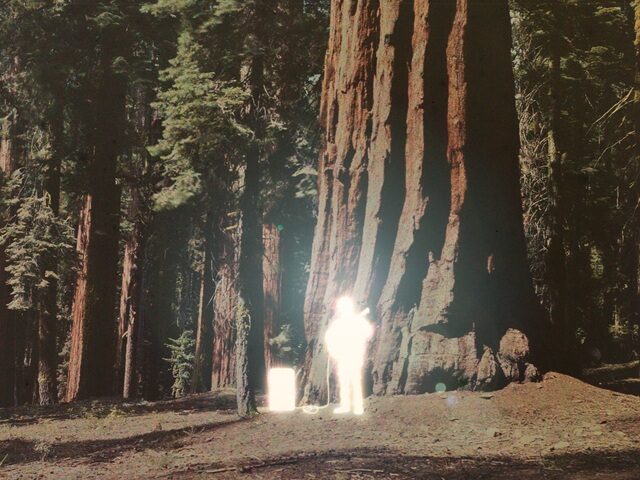
The integration of humor and satire into music can be an incredibly complex process. By coming across as humorous or self-depreciatingly witty, an artist tends to imply a sort of nonchalant demeanor that can either benefit their music or prove to be the chief detriment that drags them down. Emotional depth can be presented in any form of art, but the stylistic diversity present within music causes the attempt to integrate humor to be more intricate and complex than usual. Musical humorists often look toward the direction of Frank Zappa for a proper influence, as he remains one of the few songwriters in history that was able to blend idiosyncratic humor and satire with a never-ending assortment of musical genres. Zappa was truly a musical chameleon who was able to reconfigure popular stylistic trends to make them compatible for his unique humor, whether it was scornful, satirical, or politically motivated. Nowadays, artists seem fearful of individualistic humor, dreading that it could be a detriment to their commercialized perception. Sure, we have groups like Flight of the Conchords, Tenacious D, and The Lonely Island cooking up some pretty hilarious stuff that also maintains musical relevancy, but the style of humor often seems so contrived and inseparable from one another. Zappa was a singular force in his heyday and he continues to be in his posthumous state, serving as an influence to those that have skill in both comedic and musical performance.
Apart from being arguably the most prolific songwriter of the past century, Zappa’s enduring legacy is indebted to a style of humor that remains interpretable, enthralling, and anything but generic. I enjoy a handful of comedy-pop groups like Flight of the Conchords, but their style of comedy seems more randomly selected than metaphorically interpretive. Despite their evident talents and deserving recognition, the success of a group like Flight of the Conchords appears to be more based in stylistic mockery and over-the-top deliveries. As a result, finding a band that maintains a generally consistent style with effective humorous additives is rare these days; modern technology makes it so easy to mock a style like electro-pop or glam-rock and throw a clichéd music video together. The reason for this, as stated before, all comes down to commercialized perception. Creating quality music is obvious to the success of this genre and all others, but treading waters within this tricky realm of comedy-music requires simultaneous lyrical wit, justified instrumentation, and a delivery that is unique enough to trigger laughter but not desperate enough to be deemed over-the-top. Despite a few rough edges, Dubious Ranger hearken back to the days of Zappa when interpretable comedy in music was not incorporated to make up for a lack of musical or lyrical ability, but rather as an indicator of the artist’s own personality.

Just by reading their self-imposed description, Dubious Ranger’s comedic side can be seen. They are – and I quote – “the sound of befuddled hipsters becoming Bowie-eyed party-commandos and dancing themselves to sleep while dreaming of a more perfect union between high-art, classical-virtuoso pretension and take-your-pants-off rock and/or roll.” Quite a mouthful I know, but the best thing about this wacky description is how surprisingly accurate it turned out to be. Lead vocalist and pianist Alexander Eccles had been labeled as a piano prodigy since his childhood, with his influences comprising mostly of classical and avant-garde composers. Although his leanings shifted a bit when his brother and bandmate, Jonathan, introduced him to David Bowie, one can still get a sense of Eccles’ classical influence in the band’s unpredictable song structures and the cohesive mannerisms between the vocals’ mood and backing instrumentation. There’s the “classical-virtuoso pretension” for you, with rock ‘n’ roll being infused by Bowie’s underlying influence and Eccles’ fascinating personality. Jonathan classifies his brother as “bonkers” but explains that he is one of the few honest songwriters out there. “In his mind, love really is a rendezvous with a waitress on a cargo ship full of ghosts,” he said, providing a preview of Eccles’ odd but immensely entertaining lyrical output. “You can say you’re confused, but don’t for a damn second accuse him of not being sincere.”
Confusion among listeners is imminent on Dubious Ranger’s third album, Uneasy Truce at the Watering Hole, but so is enjoyment. The San Francisco-based quartet shows their fascination with dance-punk, indie-pop, and glam-rock simultaneously, resulting in a style that is very odd but also aptly fulfilling. The uniqueness of their style is only appropriate when their satirical delivery is involved, as Eccles’ vocals tend to alternate pitches and lyrical focus on a whim over a flurry of his own intricate piano progressions and his brother’s swanky guitar riffs. The music video for “Weapon” features an assortment of backdrops from San Francisco to Hong Kong, and one can get a sense in the track itself of the musical dexterity involved. Brimming with enthusiasm and key-led hooks, “Weapon” is one of the group’s more accessible efforts but succeeds on several fronts with slick guitar use, frenzied vocals, and clever sampling. It would be easy to identify this one as power-pop, but the presentation is too lofty to be restricted by pop ideologies. “French Song” distinctively recalls Television, both in Eccles’ spot-on resemblance to Tom Verlaine and his brother’s impressively luminous guitar use.
The humorously metaphorical outlook on love in “Ghost Ship” masterfully juggles humor with romantic sentiments, accompanied by hazy organs and a great accompaniment (the latter is an aspect present on nearly every track; Jonathan Eccles really knows how to play). The ‘60s pop of “Idiot” and the haunting cabaret of “Frozen Places” show even more diversity on the album, especially in Eccles’ ardent vocal delivery of the latter. If any of these tracks are too straightforward for you though, then I would suggest “Gemini”, the 11-minute opener that opts to directly expose the group’s post-rock mannerisms and instrumental ability. Any of the four classically-influenced “Intermezzo” pieces also slide in neatly to the album’s tone, providing minute-long piano pieces in an effort to further separate the vast amount of ideas throughout the album. The multitude of ideas throughout the album may tend to confuse first-time listeners, but repeated listens will surely reward those that are skeptical of Dubious Ranger’s lofty ambitions. In my mind though, their ambition has been reflected perfectly on Uneasy Truce at the Watering Hole, an album that has enough highlights to compensate for all the vague ideas and metaphorical interpretation. After all, what else can you expect from a successful concept album?
——————————————————————————————
[audio:http://mineorecords.com/mp3/drang-wea.mp3]——————————————————————————————
[audio:http://mineorecords.com/mp3/drang-fre.mp3]——————————————————————————————
[audio:http://mineorecords.com/mp3/drang-gho.mp3]——————————————————————————————






Ween
fun stuff. weapon is great